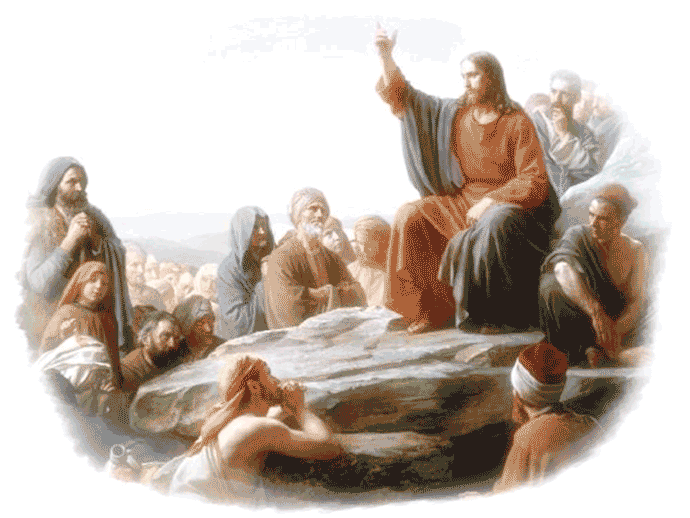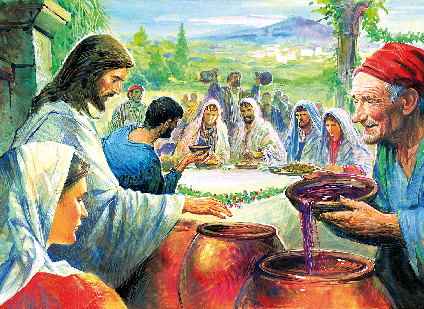PIPPO (GIUSEPPE) CORIGLIANO
An engineer, a Neapolitan who passionately loves his city, he was involved in youth training and communication. Allow me to summarize the public information that you also find on his blog.
I would like to report here some of his short meditations found on Facebook, because they particularly impressed me.
To clarify who the person is, I report the titles of some of his publications (italian only), the awards received, and his collaborations and creations:
- 2008 Mondadori "A supernatural work" for which he received the Capri Saint Michael award.
- 2010 Mondadori "I prefer Paradise". Eternal life as it is and how to get there, which had six editions and was republished in the Mondadori Oscars.
- 2012 Publisher Cantagalli "interview with Ettore Bernabei."
- 2013 received the journalism award "The good news"
- 2013 Mondadori "When God is happy/The secret of happiness".
- 2015 Mondadori "We are on a mission on behalf of God/The sanctification of work"
- 2017 Mondadori '17 "Postcards from Paradise 2".
- 2019 Mondadori "The path of San Josenaría" receives the "Letters for the Strait Area" award.
- Collaborator of Rai Vaticano
- Collaborator with Tempi magazine
- Director of the Perseus Foundation.
- He has made documentaries on St. Josemaría Escrivá, S. Alfonso de' Liguori
- Introduction to Joseph Ratzinger's Christianism and the teaching of the Church.
- From '70 to '80 he was part of the direction of Opus Dei for Italy
- communications director of the Opera in Italy for forty years (from 1970 to 2011)

MT 28,18-20 Andate dunque e ammaestrate tutte le nazioni, battezzandole nel nome del Padre e
del Figlio e dello Spirito santo, 20 insegnando loro ad osservare tutto ciò che vi ho comandato
The Good Humor
I have already written on this topic which seems important to me. Good mood can be defined in many ways. There is a physiological and a cultural aspect. When you are well it is spontaneous to be in a good mood while in different conditions it requires a decision of the will.
Trad.: There's nothing to be
done: always talks the one
who should be silent
In Naples, good humor can be seen everywhere. It is part of the city's cultural heritage, so much so that being in a bad mood is considered bad manners. The smiling friendliness is a kind of background music that can be felt in Naples. Not so elsewhere. Being in a bad mood is considered normal in many places.
It actually doesn't seem right. The kind and smiling trait brightens the lives of others and leads them to adopt the same attitude. The proof of this is that (this is the simplest example) if I enter a shop and add a joking note to my request, almost always whoever receives me adapts and jokes too. Sometimes you end up laughing even if the topic of the purchase is serious.
Being in a good mood means that I don't find anything so tragic in my life that it makes me sad. Anyone who is in a good mood doesn't deserve the phrase: "Blessed are you who laugh and understand nothing", as if they were a lively Teresa. Instead, it may be that those who smile know how to ignore the inevitable shocks of coexistence and life, if not even realize that what happens depends on the will of God and must be accepted. In this case, good humor is a consequence of faith. I met two saints with constant good humor: John Paul II and Saint Josemaría Escrivá.
Good humor is not an accidental fact: it is a real act of virtue. Long live those who know how to stay in a good mood!
Prayers of the morning and of the day
Early in the morning I always dedicate half an hour to rowing with my rowing machine. In the intervals I recite a decade of the rosary: this allows me, with a fresh mind and without haste, to reflect more on the words I say.
For example, the first three requests of the Our Father express three similar concepts: "Hallowed be your name", "Your kingdom come", "Your will be done". I'm careful not to get distracted and, if my mind goes away, I go back to repeating the three sentences. If Jesus taught us this way, he means that we must keep clear that God's will for us is essential in all aspects.
The other requests are different from each other. Daily bread comes naturally, while "forgive us our debts as we forgive our debtors" always makes me reflect. It seems like such a demanding request that it almost seems dangerous. I ask God to forgive me my sins as I forgive my "debtors". Damn: I ask God to behave like me. I have to be very careful. At the same time I think about how many people repeat this phrase at their own risk, since not all of them seem so tender-hearted to me.
The Ave Maria has become much more colorful for me. When I say: "blessed are you among women and blessed be the fruit of your womb, Jesus", I place myself under the gaze of the Madonna and it seems to me that her soul is warmed and tanned by the light of her eyes. The next request (pray for us sinners...) is natural even if the name "Mother of God" seems particularly bold to me compared to the criticisms received in the distant past.
I tell these things to stimulate an even more fruitful recitation of our prayers even better than I do.
www.pippocorigliano.it
Today, while I was praying, I considered how between me and God there is a great sea of mediocrity. How can there be mediocrity with God? All I have to do is adapt to the thought of simply being a good man and the relationship with God can be defined as mediocre. Mediocrity makes no sense with God, with Jesus. With God I must always be at the top of my feelings and availability. In the Gospel, encounters with Jesus are always an elevation to heights never seen before, and should I be satisfied with being "good"?
There are two interlocutors: me and Jesus. If I start with my eyes dull, there will be a great contrast with Jesus' response. Do I know what it means to love with all my heart? I can't pretend to be like Dante in Paradise but I have to give myself a shake. Especially the expectations of what Jesus can do with me. With Jesus my prayer becomes omnipotent. There is no human or divine problem that cannot be addressed. If I am what I am, Jesus is what he is. Therefore there are no limits to the power of the prayer that Jesus provokes in me. Everything can be faced, everything can be solved, you just need to abandon yourself to faith. Yes to faith, because if I don't live my faith with Jesus, what do I do with it? I must abandon the false modesty that derives from my objective condition and understand that "I can do everything in Him who gives me strength" (Philippians 4.13).
Wecdding at Cana
The episode of the wedding at Cana, from the Gospel of John, has many interesting aspects. First we read: "there was a wedding in Cana of Galilee and the mother of Jesus was there. Jesus and his disciples were also invited to the wedding." The mother of Jesus is presented as a character while the presence of Jesus is described subsequently... I am pleased with this ante litteram recognition of Mary which makes us understand the consideration in which the Holy Virgin was kept even before the subsequent events.

Wedding at Cana
“When there was no more wine, the mother of Jesus said to him: «They have no more wine». And Jesus answered: «What have I to do with you, woman? My time has not yet come." When we read this apparent contrast we were amazed but then we realized that it conveys a comforting meaning to us. Jesus actually agrees to Mary's request, who confidently tells the servants: "Do whatever he tells you." There is an understanding between the two: an understanding that leads us to trust in the intercession of our Mother. Mary is capable of changing the pre-established order to our advantage.
In the realization of the miracle there is an atmosphere of perfection. The servants fill the jars "to the brim", it is specified. After the master of the table (the wedding was well organized) has tasted the water transformed into wine, he says to the groom: “«Everyone serves the good wine at first and, when they are a little tipsy, the less good one; but you have kept the good wine until now."
Not only did Jesus agree to Mary's request but he did it in the best way possible. The conclusion is that we do well to trust in Mary and ask her even the impossible
The Parable: the prodigal son
Jesus' parables are all beautiful: we have heard them many times but there is the risk of taking them for granted. The parable of the prodigal son, for example, is full of significant details.
The first part of the parable is descriptive of the son's state of need after the dispersion of his inheritance.
Subsequently, the details that emerge from the father's behavior deserve attention. The son who returns does not knock on the door but the father sees him first, because he scans the horizon with hope... he is waiting and hoping.

The father does not wait for him on the doorstep but runs: he is an elderly man running. And he kissed him. In Latin: cecidit supra collum ejus et osculatus est illum. Literally: he “fell on his neck and kissed him”.
The father turns to the servants and orders the most beautiful robe of his. Back then, clothes were valuable and the "most beautiful dress" makes it clear that there was a hierarchy between clothes: the best item of all was chosen. The servants must have dressed him, says the father, because his son had not lost his dignity.
“Put a ring on his finger and shoes on his feet.” Both the ring and the shoes were accessories with a precise meaning of importance.
“Bring out the fatted calf…”. The father does not say "a calf" as there were in the stable, but "the" calf. It was the best, the delicacy.
“For this son of mine was dead and is alive again; he was lost and was found”. Here is the teaching of Jesus: Distance from God is death and, above all, the Father awaits us anxiously. We must make God happy. We must be found again…
“And they started having a great celebration.” For those who have a melancholic conception of faith, let it be clear: the Father is organizing a party. It's good with God. He laughs and is happy.
The jinxed son who returns from the countryside also represents ourselves when we submit to God's will sideways. No! We must happily embrace our vocation: the state in which we find ourselves. It is there that we must rejoice with Jesus and celebrate in the Father's affection
We Catholics have a great gift. The real presence of Jesus. During the holy mass we listen to those words:
“Take, and eat, all of you: this is my Body
offered as a sacrifice for you.
Take it and drink it, everyone: this is the cup of my Blood for the new and eternal alliance, poured out for you and for everyone
in remission of sins. Do this in memory of me."
In the moment in which Jesus, in the guise of the priest, pronounces these words it is as if the ceiling broke down and there was Jesus himself speaking outside of time and space, ...
The Holy Thursday is the particular day in which we contemplate this wonder.
 We have this privilege that surpasses our imagination. No one has a similar gift: to be in the presence of God in a context of eternity, witnesses of a God who loves us, becomes incarnate, teaches us and dies for us. We identify with Him: We eat Him. We have this privilege that surpasses our imagination. No one has a similar gift: to be in the presence of God in a context of eternity, witnesses of a God who loves us, becomes incarnate, teaches us and dies for us. We identify with Him: We eat Him.
Many of us have inherited a modest conception of Christianity typical of those who have a series of chores to attend to in life. In the midst of all this there is a brief interval in which we think about God.
For the rest we try to be "good". A hymn to mediocrity.
If you read the gospel you have a completely different perspective. God awaits us like the father of the prodigal son, while we carry on with the sensitivity of the other son, the one who works in the countryside and is "good" but does not understand the essentials. We need to accept the idea that things are different than we are used to thinking.
Jesus loves us with vibration and we should correspond, full of God's love. Everything else comes later and our life can become a holy life. We need to convert.
Comments on the death of Benedict XVI, Pope Joseph Ratzinger
Reading the comments on the death of Pope Ratzinger I feel the need to clarify a point: if we stop at the episodes of his pontificate, first of all the sensational resignation, we do not highlight the true character.
I am not in a position to adequately comment on the life and thought of Ratzinger, who is the most impressive thinker and theologian of the century. Providence asked him to be bishop, cardinal and pope and he fulfilled his role. But the heritage that he left us are his writings and his speeches. Ratzinger must be read, period.
His “Introduction to Christianity” is a basic text that anyone who has graduated from high school is capable of understanding. In the introduction Ratzinger says: "the book arose from the lessons I held in Tübingen in the summer semester of 1967, to listeners of all faculties... it aims to make faith understood in a new way, presenting it as a facilitation to authentic living human in our world today, without degrading its consistency..."
Ratzinger was then forty years old and had participated in the Council as an expert, collaborating with the major theologians and cardinals of the time.
The Vatican Bookshop is currently publishing 16 volumes that collect his philosophical and theological thought, while publishing houses have published books taken from his cycles of lectures or sermons.
The events of his pontificate are notable but, from a historical perspective, his figure remains central to the commitment to speak adequately about God to contemporary man.
Today, while I was praying, I considered how between me and God there is a great sea of mediocrity. How can there be mediocrity with God? All I have to do is adapt to the thought of simply being a good man and the relationship with God can be defined as mediocre. Mediocrity makes no sense with God, with Jesus. With God I must always be at the top of my feelings and availability. In the Gospel, encounters with Jesus are always an elevation to heights never seen before, and should I be satisfied with being "good"?
There are two interlocutors: me and Jesus.
 If I start with my eyes dull, there will be a great contrast with Jesus' response. Do I know what it means to love with all my heart? I can't pretend to be like Dante in Paradise but I have to give myself a shake. Especially the expectations of what Jesus can do with me. With Jesus my prayer becomes omnipotent. There is no human or divine problem that cannot be addressed. If I am what I am, Jesus is what he is. Therefore there are no limits to the power of the prayer that Jesus provokes in me. Everything can be faced, everything can be solved, you just need to abandon yourself to faith. Yes to faith, because if I don't live my faith with Jesus, what do I do with it? I must abandon the false modesty that derives from my objective condition and understand that "I can do everything in Him who gives me strength" (Philippians 4.13). If I start with my eyes dull, there will be a great contrast with Jesus' response. Do I know what it means to love with all my heart? I can't pretend to be like Dante in Paradise but I have to give myself a shake. Especially the expectations of what Jesus can do with me. With Jesus my prayer becomes omnipotent. There is no human or divine problem that cannot be addressed. If I am what I am, Jesus is what he is. Therefore there are no limits to the power of the prayer that Jesus provokes in me. Everything can be faced, everything can be solved, you just need to abandon yourself to faith. Yes to faith, because if I don't live my faith with Jesus, what do I do with it? I must abandon the false modesty that derives from my objective condition and understand that "I can do everything in Him who gives me strength" (Philippians 4.13).
|









